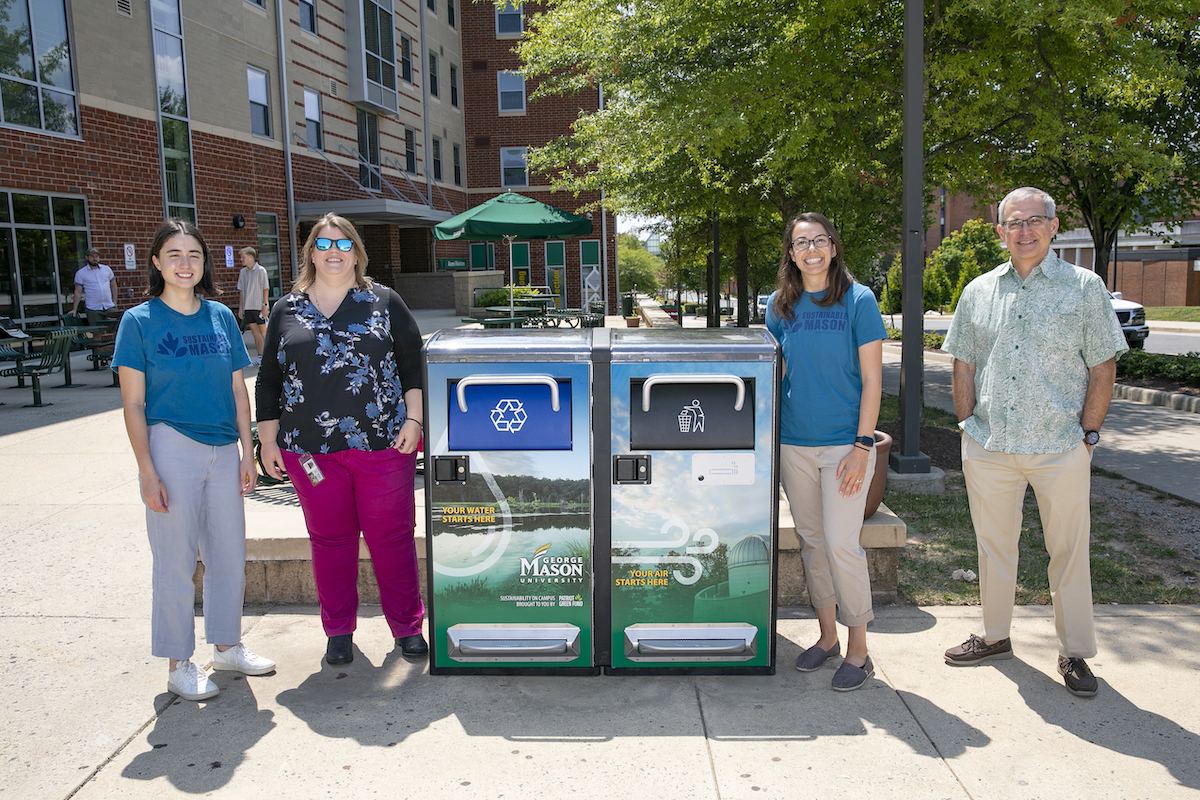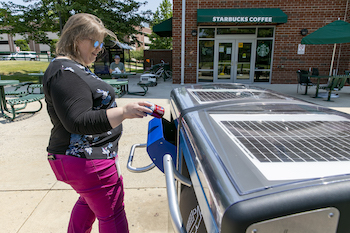
The installation of the first Bigbelly zero waste station on George Mason University’s Fairfax Campus aligns with the university’s waste reduction commitment and draws attention to how single-use consumption and disposal is connected to negative environmental outcomes.
“Sending something to the landfill doesn’t have to be the immediate option,” said Colleen Regan, resource responsibility and zero waste specialist for Mason’s Office of Sustainability. “Through infrastructure change we can reduce Mason’s environmental impact.”
Mason students, the Sustainability Office and Mason Facilities worked collaboratively to get the smart, solar-powered Bigbelly station installed on the Northern Neck Starbucks patio. The Bigbelly station consists of one trash and one recycling bin, topped with solar panels, and integrated with sensors and compactors.
The compactors will allow the units to hold up to eight times more waste than standard bins, said Amber Saxton, sustainability program manager for campus efficiencies.
The installation, paid for by the Patriot Green Fund, allowed Mason to remove 10 to 12 trash and recycling bins from the Starbucks patio, said Kevin Brim, supervisor of recycling and waste management.

The Bigbelly addition “positions Mason as an innovative leader in its response to waste challenges,” said Benjamin Auger, sustainability program manager for education and outreach.
It also represents an active response to Virginia Gov. Ralph Northam’s March 2021 Executive Order 77, which aims to reduce plastics pollution and solid waste.
On the outside, the Bigbelly station features branded wraps designed by Mason’s Creative Services. The visual element connects Mason’s zero-waste efforts to nature and contains educational messaging about recycling and zero-waste.
To streamline waste collection, the sensors within the units provide real-time data and fill alerts. That means Facilities employees will be able to track the exact capacity of the bins, peak use hours and how often they are being emptied, said Connor Cuevo, a senior conflict analysis and resolution major and the student Patriot Green Fund project lead.
This will reduce the activity of garbage trucks and, in turn, the emissions from truck pickups.
“Expanding these stations could prevent litter from blowing away and ending up in our stormwater drains,” Saxton said. “And by using Bigbelly’s closed hoppers near dining patios, we hope to redirect the bees to areas that will support their health, like Mason’s pollinator gardens.”
During the next year, the Project Green Fund team will assess how these units streamline waste collection, Cuevo said, and added that near-term additions could include a new composting unit. The team also hopes to create revenue from advertising space on the sides of the units to help finance maintenance over their eight- to 10-year lifespan and expansion of the program.
